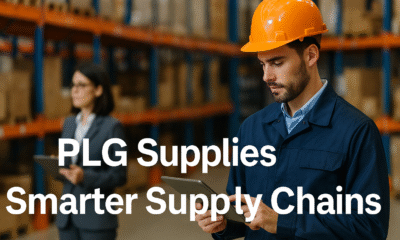Technology Info
PLG Supplies: The Ultimate Guide to Pipeline & Gas Industry Essentials
Published
4 weeks agoon
By
Aqsa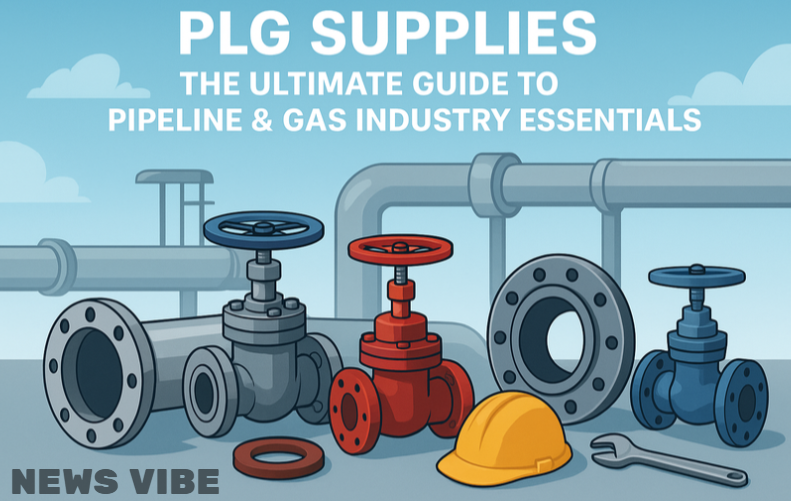
Introduction – The Backbone of Modern Infrastructure
Ever wondered what keeps oil, gas, or water flowing through thousands of miles of pipelines without a hitch? That’s where Pipeline and Gas (PLG) supplies step in — the pipes, valves, fittings, gaskets, tools, and safety gear that make every system work efficiently and safely.
From offshore rigs to municipal water lines, these components are the unsung heroes of modern infrastructure. According to the American Petroleum Institute (API), using certified, high-quality PLG supplies can reduce pipeline leak incidents by up to 40% — saving billions in repairs and environmental costs.
In this guide, you’ll learn what PLG supplies are, why quality matters, and how to select the right ones for your projects — whether you’re managing a refinery in Texas or setting up a water system in Mumbai.
1. Understanding PLG Supplies
PLG supplies are specialized components used to transport and control fluids or gases under pressure. Every item — from a simple valve to a heavy-duty flange — plays a role in keeping the system safe and efficient.
| Category | Common Materials | Function |
| Pipes & Tubes | Carbon Steel, Stainless Steel, PVC, HDPE | Transport fluids and gases safely |
| Valves | Brass, Steel, Alloy | Control flow and pressure |
| Fittings & Joints | Copper, PVC, Steel | Connect and redirect pipelines |
| Flanges & Gaskets | PTFE, Rubber, Graphite | Seal connections and prevent leaks |
| Safety & Tools | PPE, Wrenches, Gauges | Protect workers and support maintenance |
Each part is built to meet strict standards such as ASME B31.3 or ISO 9001, ensuring strength, pressure tolerance, and leak resistance.
In India and Southeast Asia, additional standards like IS 1239 for steel pipes ensure compliance with local safety codes.
2. Why Quality PLG Supplies Matter
Cutting corners on materials might look cheaper upfront, but it often leads to expensive breakdowns later. A leaky valve or corroded pipe isn’t just a maintenance issue — it’s a potential environmental and safety hazard.
Key Benefits of High-Quality PLG Supplies
- Safety: Prevents leaks, bursts, and accidents.
- Efficiency: Maintains steady pressure and reduces downtime.
- Compliance: Meets international safety and environmental laws.
- Cost Savings: Minimizes replacements and repair costs.
A World Bank study found that global pipeline failures from poor materials cost industries over $10 billion annually. Quality materials don’t just save money — they protect people and ecosystems.
3. Industries That Depend on PLG Supplies
Oil & Gas
The backbone of energy production. Over 2.5 million kilometers of natural gas pipelines span the world (according to Statista). Major operators like ONGC, GAIL, and Shell rely on precision valves and corrosion-proof pipes to handle extreme pressure.
Water & Waste Systems
Durable pipelines prevent leaks and contamination in urban water networks. The EPA’s Water Infrastructure Guidelines recommend HDPE and stainless steel materials for long-term sustainability.
Construction & Manufacturing
Factories, power plants, and HVAC systems depend on PLG fittings for internal flow management. These components align with ASHRAE standards to ensure energy-efficient, safe systems.
4. Choosing the Right Materials
Each environment demands the right material — one mistake can lead to rust, pressure failure, or chemical reaction.
Carbon Steel
✅ Strong and cost-effective for long-distance oil and gas transport.
⚠️ Can corrode in humid or coastal conditions.
Stainless Steel
✅ Corrosion-resistant and hygienic; ideal for chemical and food industries.
⚠️ Slightly more expensive but longer-lasting.
PVC & HDPE
✅ Lightweight, rust-free, and easy to install. Perfect for water and low-pressure systems.
⚠️ Limited temperature resistance.
Copper
✅ Great heat conductor for plumbing and HVAC systems.
⚠️ Best suited for controlled environments, not high-pressure zones.
According to Engineering Toolbox, engineers should always match material type with fluid temperature, pressure rating, and surrounding conditions to prevent long-term wear.
5. How to Choose the Right PLG Supplier
Finding the right supplier is about more than just price — it’s about trust, traceability, and support.
Checklist for Reliable Suppliers
- Certifications: Look for API Spec Q1 or ISO 9001.
- Material Test Reports (MTRs): Ensure every component can be traced back to its source.
- Inventory & Speed: Fast response times for emergency replacements.
- Technical Support: Engineering expertise when you need guidance.
- Global Reach: Ability to handle logistics and customs efficiently.
Recommended global suppliers:
- Victaulic Piping Systems – pioneers in grooved mechanical joints.
- Swagelok – specialists in valves and fittings.
- Grainger Industrial Supply – large-scale industrial product distributor.
- McMaster-Carr – extensive range for quick availability.
6. Sustainability and Innovation in PLG Supplies
Modern infrastructure demands eco-conscious choices. The future of PLG is green, smart, and efficient.
Key Innovations
- Recyclable Materials: Stainless steel and HDPE support circular economy principles.
- Smart Sensors: Detect leaks instantly, reducing waste and energy loss.
- 3D-Printed Components: Enable on-demand, low-waste manufacturing.
- Low-Carbon Production: Factories adopting renewable-powered operations.
A 2024 Energy.gov report estimates that upgrading global pipeline systems could cut energy losses by 15–25%, underscoring the sustainability advantage.
7. Maintenance & Safety Practices
Regular maintenance keeps systems efficient and prevents disasters.
Recommended Schedule
- Inspect pipes and valves every 6–12 months.
- Replace gaskets every 1–2 years under high pressure.
- Lubricate valves quarterly.
- Store supplies in dry, dust-free environments.
Follow OSHA’s pipeline safety standards to ensure compliance and worker protection. Remember — prevention is always cheaper than repair.
8. The Future of PLG Supplies
The next decade will redefine the PLG industry through technology and automation.
- IoT-Enabled Valves: Monitor performance in real time.
- AI Predictive Maintenance: Detects weak spots before failure.
- Smart Polymers: Self-healing materials extend pipeline life.
- AR & VR Training: Helps field engineers perform complex repairs safely.
According to Deloitte’s 2025 Industrial Forecast, over 60% of supply chains will integrate smart-connected systems by 2030 — transforming pipeline maintenance and operations.
9. FAQs – Quick Insights
Q1: What’s better — HDPE or PVC for water lines?
HDPE handles pressure and temperature better, while PVC is cheaper but less flexible.
Q2: How often should pipelines be inspected?
Every 6–12 months, depending on conditions and pressure rating.
Q3: Are PLG supplies used in renewable energy?
Absolutely. They’re vital for hydrogen pipelines, geothermal plants, and biogas facilities.
10. Conclusion – Building Smarter, Safer Infrastructure
PLG supplies might not be visible, but they power everything around us — from your tap water to industrial energy systems. By choosing certified suppliers, adopting sustainable materials, and leveraging smart technology, you build not just pipelines — but a safer, smarter, and more efficient future.
Also Read:Tech eTrueSports: Redefining the Future of Esports Through Technology

OTHER POSTS
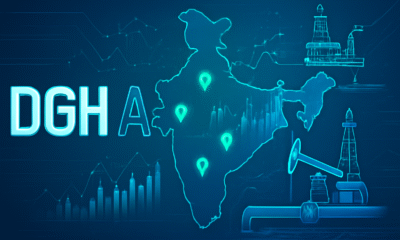

Understanding DGH A: The Heart of India’s Hydrocarbon Management and Its Role in Securing Energy Future
India’s energy sector is undergoing significant transformation, marked by a strategic drive to become more self-reliant in energy production. At...
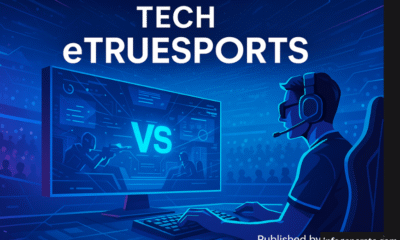

Tech eTrueSports: Redefining the Future of Esports Through Technology
Introduction: The Rise of Tech in Esports The esports industry has exploded in the past decade. According to Newzoo’s 2024...


Comporium Webmail: The Ultimate Guide to Login, Setup, Features, and Troubleshooting.
In today’s digital world, staying connected through reliable email communication is essential. Whether you’re a professional managing clients or a...
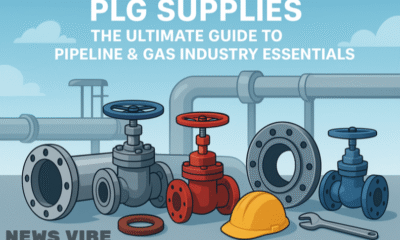

PLG Supplies: The Ultimate Guide to Pipeline & Gas Industry Essentials
Introduction – The Backbone of Modern Infrastructure Ever wondered what keeps oil, gas, or water flowing through thousands of miles...


Gabriel Macht Net Worth 2025: Career, Earnings, Assets, and Lifestyle
Introduction If you’ve ever watched Suits, you know Harvey Specter — the sharp, confident lawyer who always plays to win....


Understanding “i n c r e a ”: Meaning, Data, and Real-World Applications
Introduction The word “i n c r e a” is among the most universally used concepts across disciplines — from...


Misha Ezratti Net Worth (2025): Inside the Fortune and Legacy Behind GL Homes
Introduction In Florida’s booming real estate market, few names carry as much influence and respect as Misha Ezratti. As the...


Deion Sanders Net Worth 2025: How “Prime Time” Built His $60 Million Fortune
Introduction When you hear the name Deion Sanders, one word comes to mind: Prime Time.From blazing speed on NFL fields...


Dan Newlin Net Worth 2025: Lawyer’s Wealth, Career, and Success Story
Introduction: More Than Just a Number When people search “Dan Newlin Net Worth 2025,” they aren’t only curious about how...


Tommy Mottola Net Worth & Biography: From Bronx Beginnings to Global Business Icon
Introduction When it comes to wealth, influence, and legacy in the entertainment and business world, few names stand out as...

Understanding DGH A: The Heart of India’s Hydrocarbon Management and Its Role in Securing Energy Future

Tech eTrueSports: Redefining the Future of Esports Through Technology

Comporium Webmail: The Ultimate Guide to Login, Setup, Features, and Troubleshooting.

AnonIB AZN: The Dark Truth Behind Anonymous Image Boards and Why You Should Stay Away

Crypto30x.com TNT Review: Full Guide, Benefits, Risks & Price Forecast

iofbodies.com Applications: Your Body’s Digital Mirror in a Smarter World
Trending

 Tech News6 months ago
Tech News6 months agoAnonIB AZN: The Dark Truth Behind Anonymous Image Boards and Why You Should Stay Away

 Crypto & Blockchain Info4 months ago
Crypto & Blockchain Info4 months agoCrypto30x.com TNT Review: Full Guide, Benefits, Risks & Price Forecast

 Technology Info8 months ago
Technology Info8 months agoiofbodies.com Applications: Your Body’s Digital Mirror in a Smarter World

 FinTech Info8 months ago
FinTech Info8 months agoFintechzoom.com Crypto Mining: Your 2025 Guide to Smarter Mining

